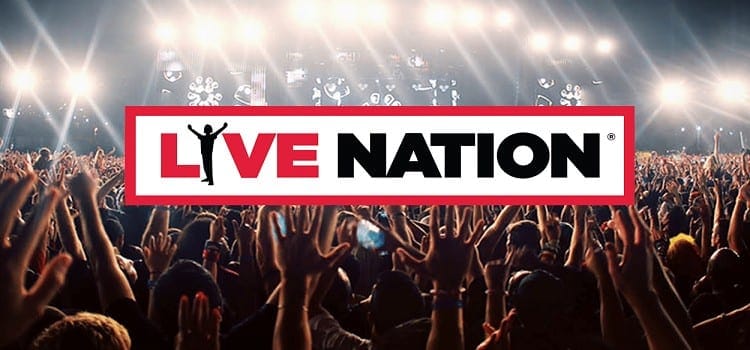According to legal analysis, those who attended Astroworld Festival in Houston and are considering legal action should read the fine print if event organizers make good on early promises to pay out refunds. It is possible that the terms included with acceptance of that refund will require consumers to give up their legal right to sue Live Nation Entertainment as part of the deal.
If this tactic is employed, it means that the refund dollars could be something of a Trojan horse – making the consumers who attended the ill-fated festival whole after it was cancelled during Scott’s headlining set Friday and called off entirely Saturday, but forcing at least some legal actions to arbitration in an effort to limit liability.
It has been just over a week since Astroworld, and over 100 lawsuits have already been filed in the wake of the tragedy, which saw its 10th death occur over the weekend when a 9-year-old who had been severely injured in the crowd “crush” succumbed to his injuries. Hundreds of others were injured, a result of the crowd being packed far too densely, leading to some being swept up and compressed when they were unable to get out of the way of the surge.
Lawsuit targets have been plentiful. Travis Scott, the Houston native who launched the Astroworld festival and was on stage when the crush happened, has been a common named defendant. Drake, who was on stage as well at the time of the injuries, has too. The City of Houston has been named, as well as NRG Park where the festival was being held. But the most common target is Live Nation Entertainment and its ScoreMore subsidiary, which promoted the event and was largely in charge of planning and security at the festival.
Live Nation has had success in many instances deflecting consumer lawsuits by relying on arbitration clauses in the fine print of their terms and conditions.
Under Section 17 of the standard terms of use on Ticketmaster.com, there is a “Mandatory Arbitration Agreement and Class Action Waiver.” It reads, in part:
YOU AND WE EACH AGREE THAT, EXCEPT AS PROVIDED BELOW, ANY DISPUTE, CLAIM, OR CONTROVERSY RELATING IN ANY WAY TO THE TERMS, YOUR USE OF THE SITE, OR PRODUCTS OR SERVICES SOLD, DISTRIBUTED, ISSUED, OR SERVICED BY OR THROUGH US—IRRESPECTIVE OF WHEN THAT DISPUTE, CLAIM, OR CONTROVERSY AROSE—WILL BE RESOLVED SOLELY BY BINDING, INDIVIDUAL ARBITRATION AS SET FORTH IN THE TERMS, RATHER THAN IN COURT. YOU AND WE THEREBY EACH AGREE TO WAIVE ANY RIGHT TO A JURY TRIAL, AND AGREE THAT YOU AND WE MAY BRING CLAIMS AGAINST EACH OTHER ONLY IN AN INDIVIDUAL CAPACITY, AND NOT AS A PLAINTIFF OR CLASS MEMBER IN ANY PURPORTED CLASS OR REPRESENTATIVE PROCEEDING.
Live Nation Entertainment could also add additional language waiving the right to sue in whatever refund process they require consumers to opt in to if they want. And according to Neama Rahmani, those who accept might find themselves without the option to sue because they would have waived that right in exchange for something of value.
“Courts generally uphold those types of waivers,” Rahmani, who is a personal injury lawyer, told Insider. “The classic case is arbitration agreements. Everyone kind of scrolls through. No one reads the fine print, and guess what, you’ve waived your right to a jury trial, waived your right to file a lawsuit, to demand arbitration.”
In 2019, a lawsuit claiming Ticketmaster’s documented business with professional ticket resellers constituted monopolistic and anti-consumer behavior was successfully tossed out to private arbitration by a federal judge in California. Another similar lawsuit was similarly run out of trial court to arbitration earlier this year.
But the legal experts talking to Insider noted that the potential claims of negligence on the part of Live Nation Entertainment, which has seen its spotty history of safety at events it promotes reported extensively in the wake of Astroworld, could render the standard shield that those terms of use moot.
“The terms discuss Live Nation’s website, mobile app, tickets, COVID, etc. but not the potential for serious injury or death caused by the setup of the event, security or lack thereof, or artists encouraging violence,” Rahmani said.
Should the promoters attempt to slide additional protection in the refund language, it could be something that consumers can challenge in court, though that obviously would mean litigation just to prove that they can litigate in the first place.
“If after an event that is traumatizing and that is difficult to overcome, you give somebody a refund for a ticket and sneak in some language in there, at the very least, that can be challenged in court in good faith,” says Dmitriy Shakhnevich, an adjunct professor at John Jay College of Criminal Justice.
What consumers should pay attention to, if they were in attendance at Astroworld and are offered a refund, is certain words that could signal an attempt at making it harder to sue.
“What they need to look for specifically, is the word ‘Waiver,’ ‘Consent’ ‘Agreement’ of any kind,” says Carmen Roe, a legal analyst for KHOU in Houston. “And most importantly, they need to be concerned if they’re asked to sign anything. Refunds should not come with a signature. So, in this particular case, Live Nation has suggested they’re going to refund these people, and that this is all going to be on the up and up. That shouldn’t require their signature under any circumstances.”




